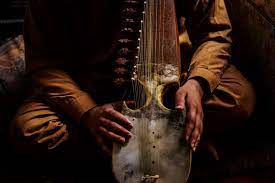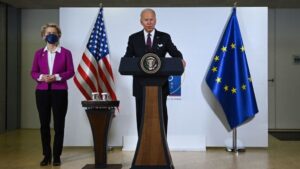
The Taliban can destroy many things, but music is not one of them
o Afghan will ever forget the day after the Taliban took Kabul. It was the day they witnessed some of their countrymen – hopeless men and boys adhering to the bus of evacuation aeroplanes – fall from the sky.
So much of the country’s treasure and gift was on those aeroplanes – not only its university professors and their scholars, or business possessors and their capital, or open mortal rights protectors, but also numerous of its artists and musicians. Social media was packed with selfies of Afghan vocalizers and players in weight aeroplanes and in exile camps. Two hundred and seventy-three scholars and faculty members of the Afghan National Institute of Music, as well as their families, were vacated to Portugal.
The wretched boys who fell back onto the tarmac – reverse into their country’s reality – sounded the ultimate symbol of Afghanistan’s terrible plight. They were a slice of the millions who demanded the chops, the connections, the coffers or the cunning to get a seat out, and who would be condemned to die in Afghanistan’s new vacuum.
A waterfall of tragedies has chanced Afghanistan since, including a string of targeted killings ( suspected to have been carried out by operatives of the ruling Taliban), as well as a shattered frugality and an coexisting hunger extremity. Last month, a BBC camera in Kabul captured a videotape of a lonely beggar playing the flute. He was playing Sarzamine Man (My Motherland), an old song about the imperishable struggle of Afghans forced to flee war. It has made a comeback since August. Throughout the once four months, it has been sung by Afghans on the runway at Kabul Airport during the evacuation, by Afghan deportees in camps in the Middle East and by diaspora Afghans protesting in old European megacity places.
A line from its lyrics speaks of a nation rendered without any tune or air. It’s especially poignant considering the way the Taliban government has sought to silence any musicians who have been unfit to leave the country, and ban music and nonreligious art from public spaces.
As The National reported in November, Kharabat Street, the heart of Kabul’s musical quarter, has fallen silent. Zabiullah Mujahid, a elderly Taliban spokesperson, has said constantly that music is banned, and in some municipalities, Taliban police as well as their vigilante sympathizers have penalized those caught playing. In Andarab fiefdom, north of Kabul, families speak in whispers of the original vocalizers who have been faded – presumably boggled – by the Taliban.
History, Taliban authorities passed a directive banning the playing of any music in private vehicles.
The absence of music on the thoroughfares may feel a trivial affair in a country faced with mass starvation and continued violence. But as Sarzamine Man suggests, music can be aliment for the soul when none for the body is forthcoming.
Indeed the Taliban’s bottom dogfaces are apprehensive of this, when they aren’t busy hanging musicians. Some of them have learnt the fungibility of one kind of aliment for the other. A caller from Kabul to Abu Dhabi lately told me of a marriage he attended in the Afghan country in October. I asked if there was live music. To my surprise, he told me that there was, and that it was made possible by the bachelor’s father offering free food to the Taliban details who passed by in exchange for them looking the other way. The Taliban dogfaces, he said, were oppressively glutted, not having been paid hires in months. And actually, he noted, times in Afghanistan are so sad that people feel willing to take huge pitfalls just to hear a little music.
Another Afghan, an necessary musician, has told me of his incapability to compose anything in the days after the Taliban came to power. He was in too important shock. But also one day, he woke up and felt all of the bottled-up passions overflow, and he has been writing further melodies
.



Average Rating